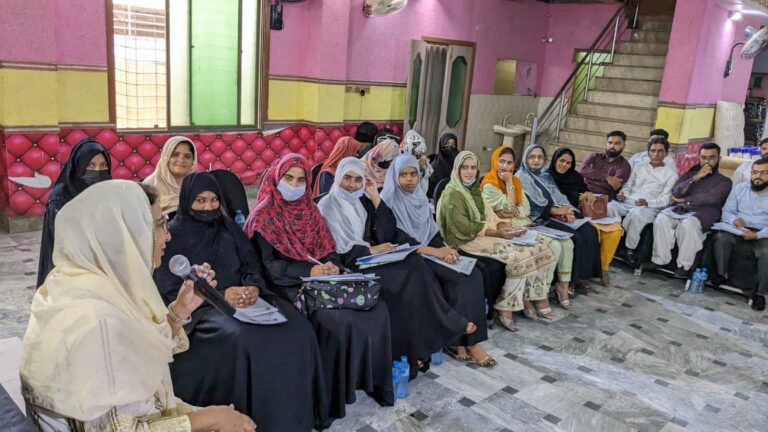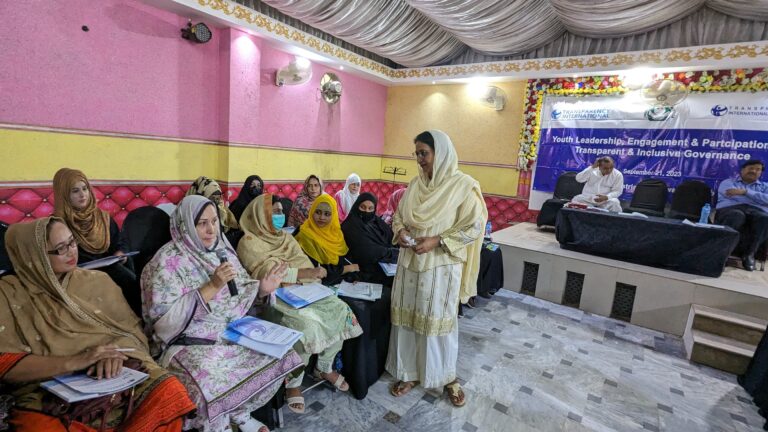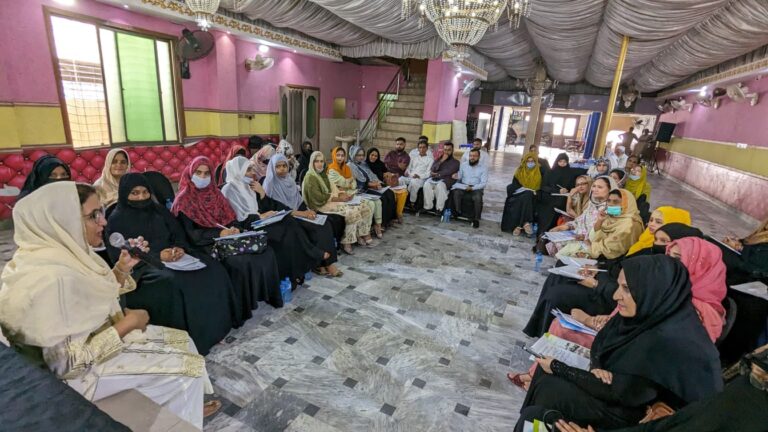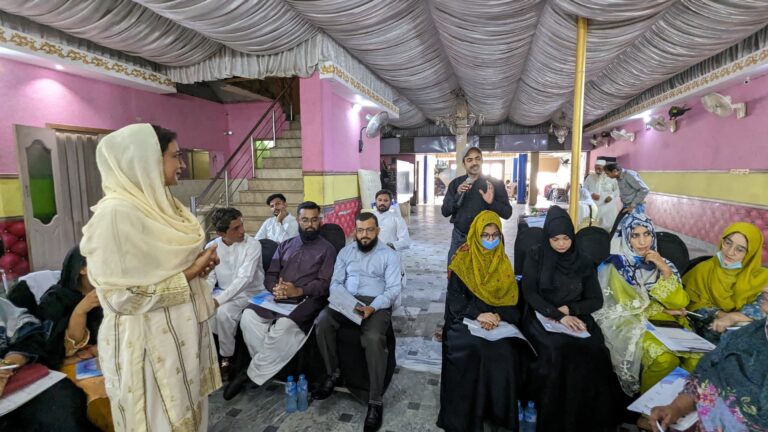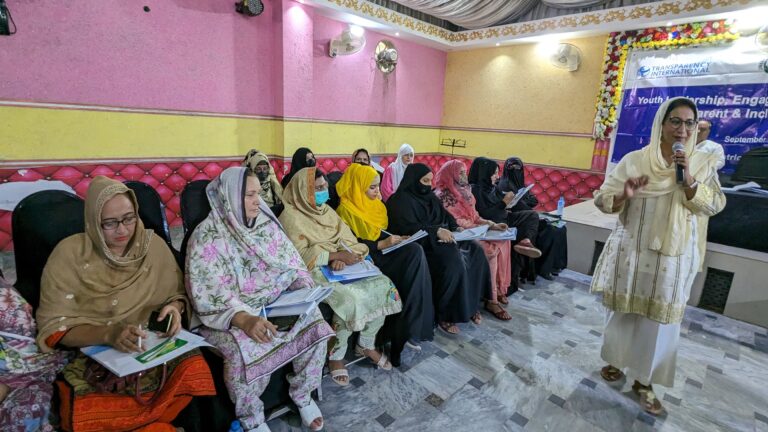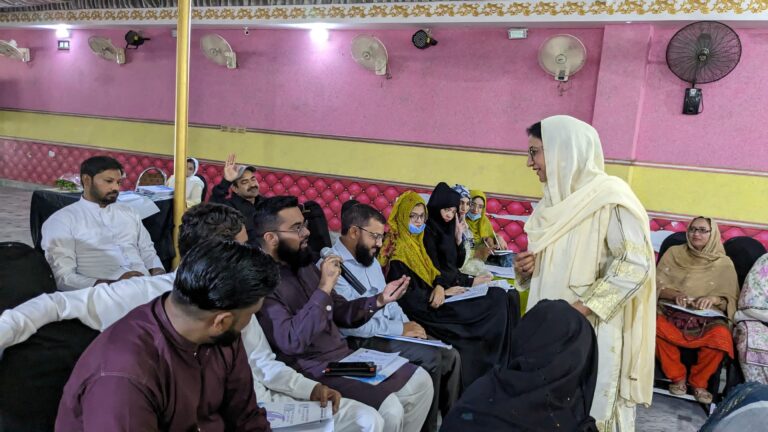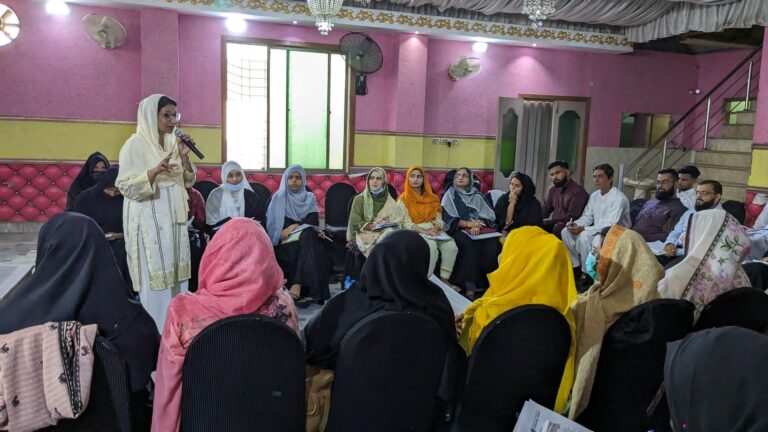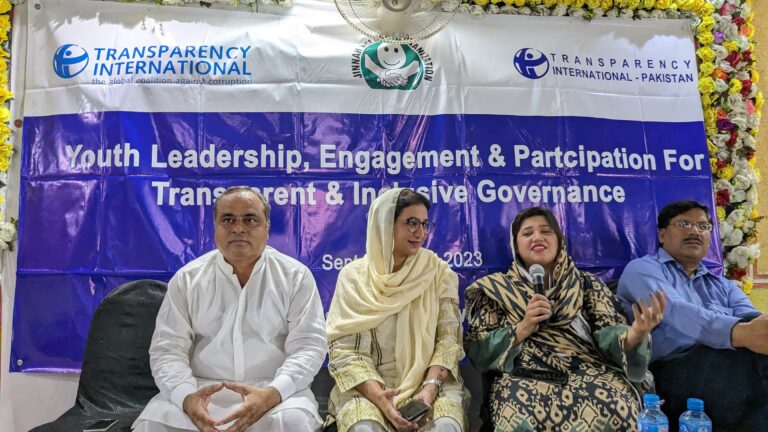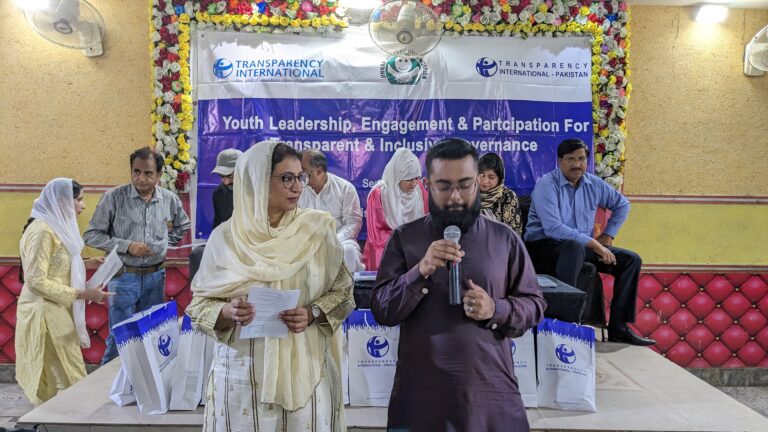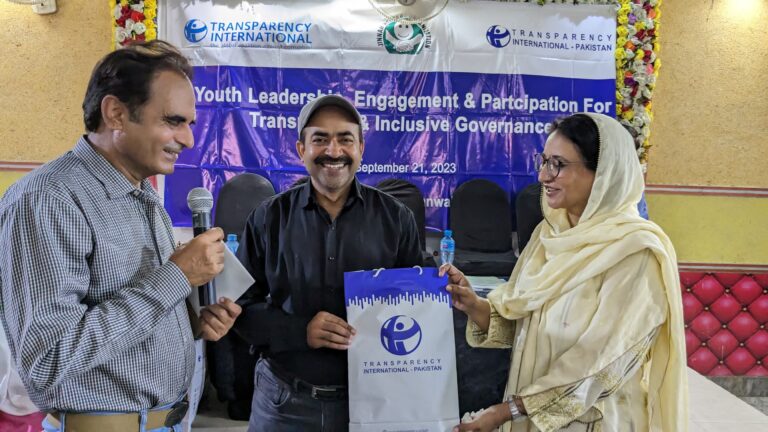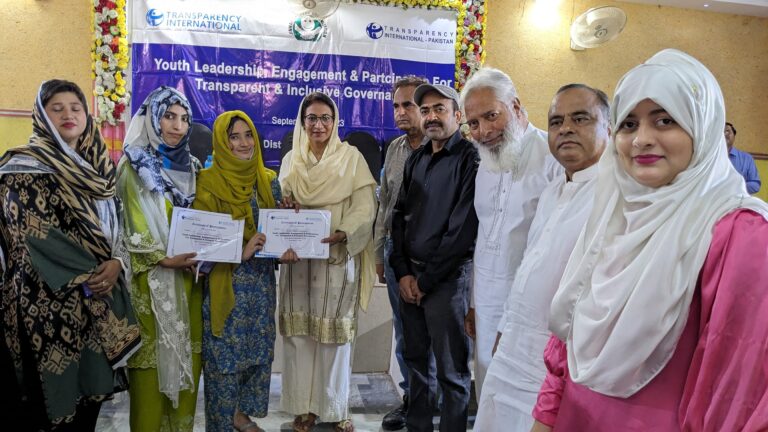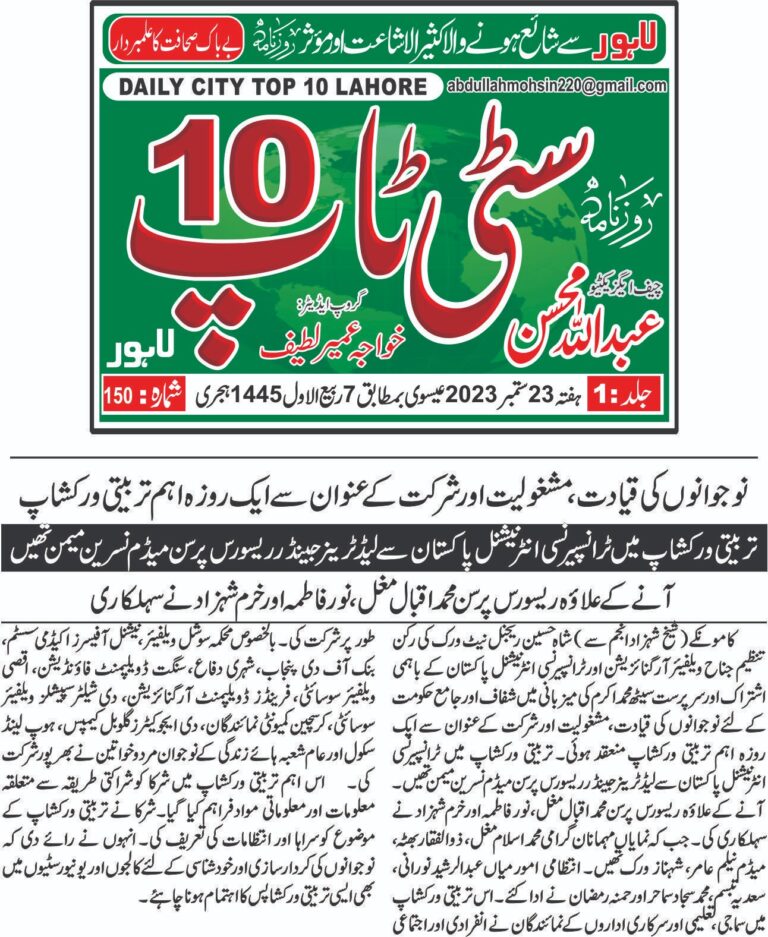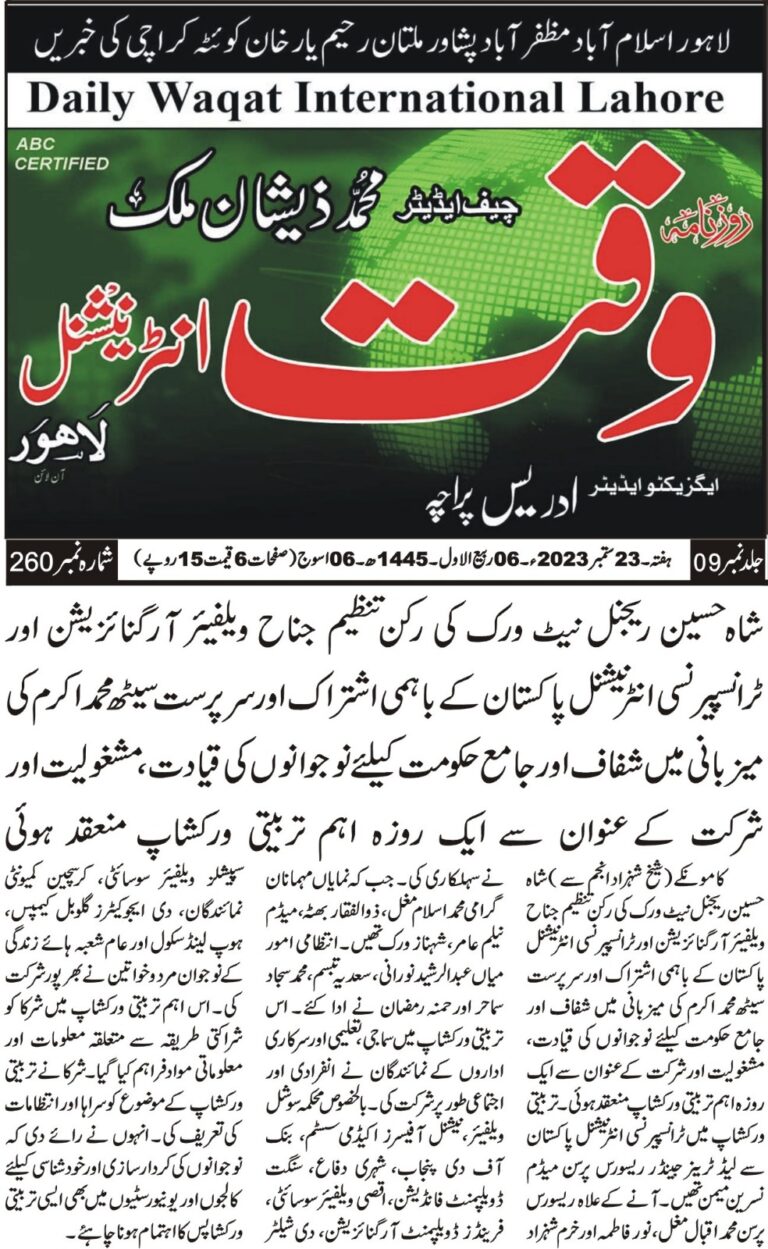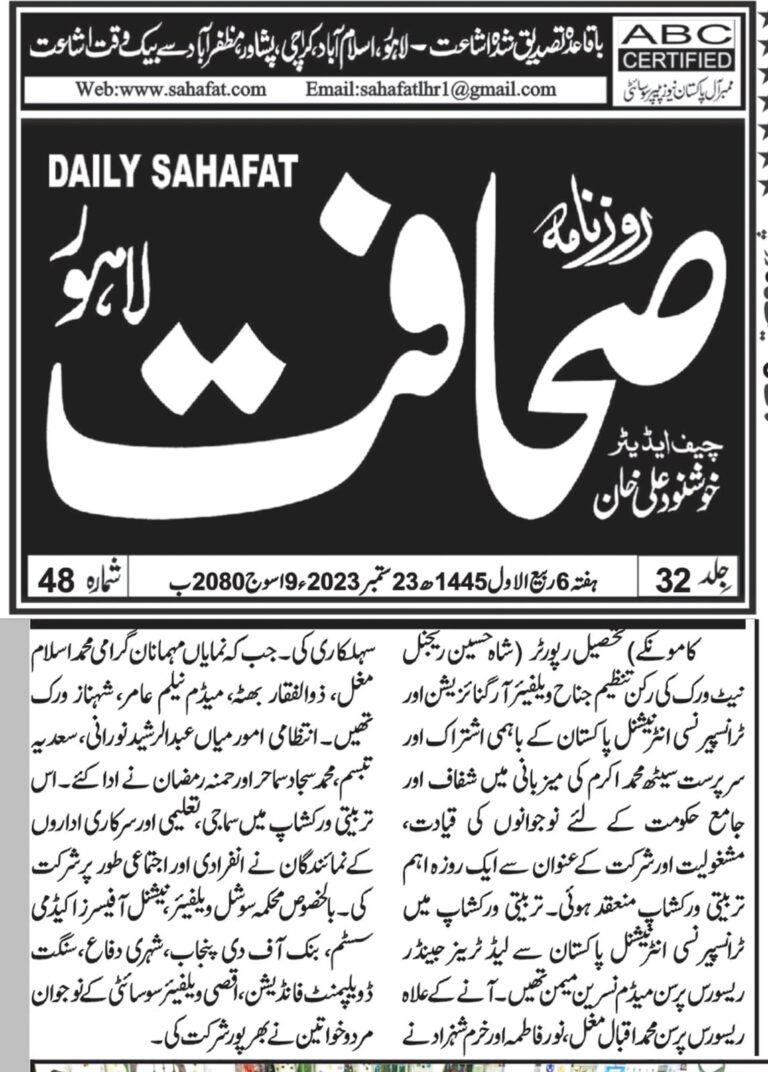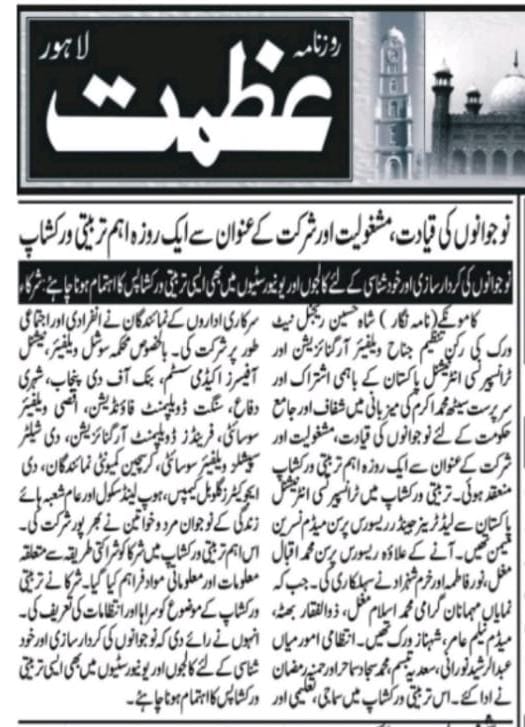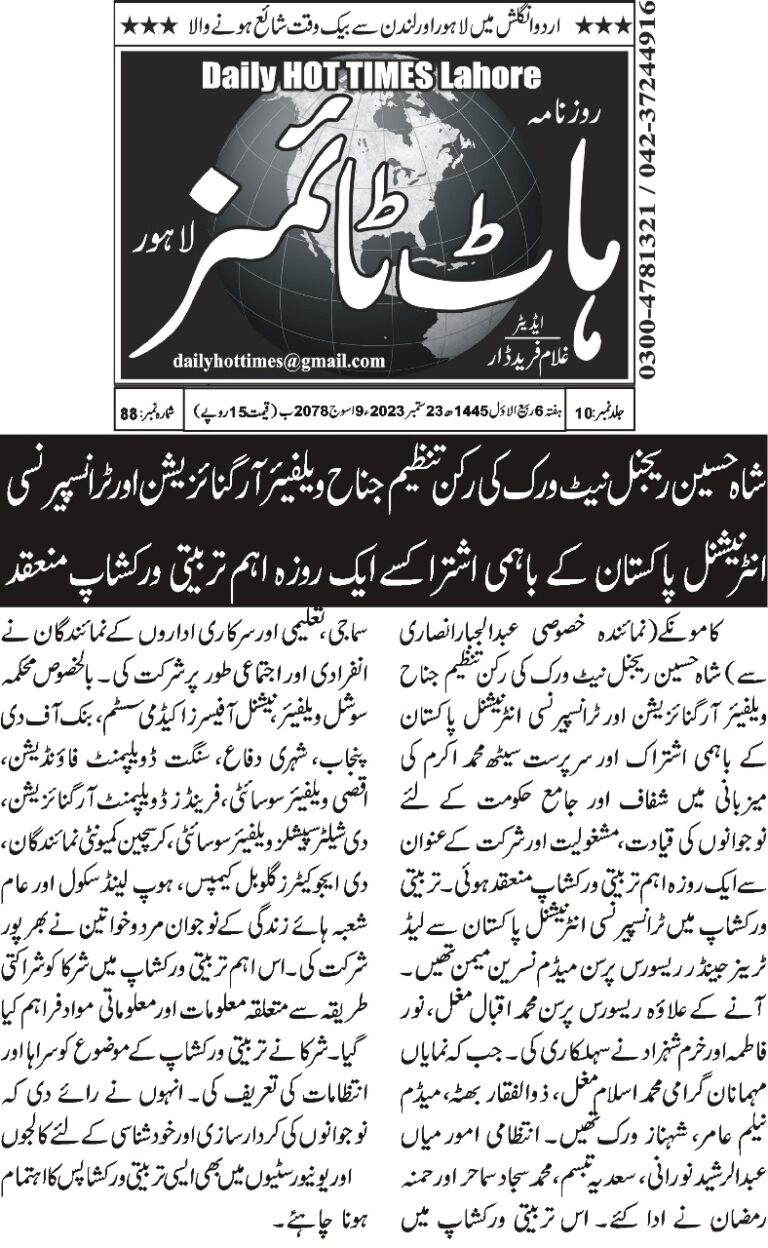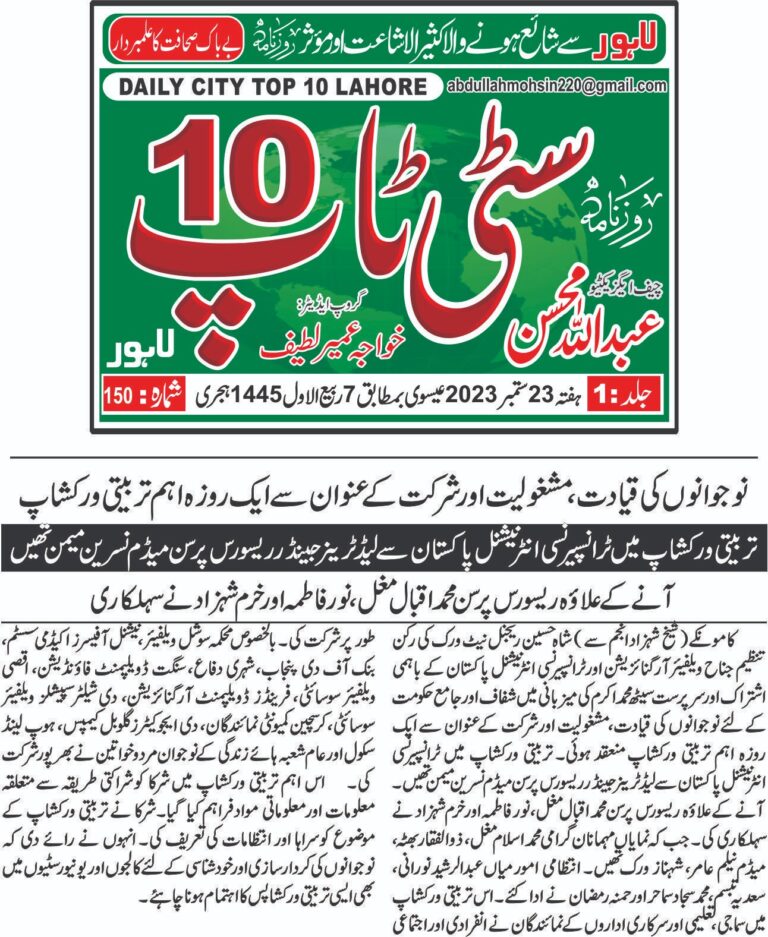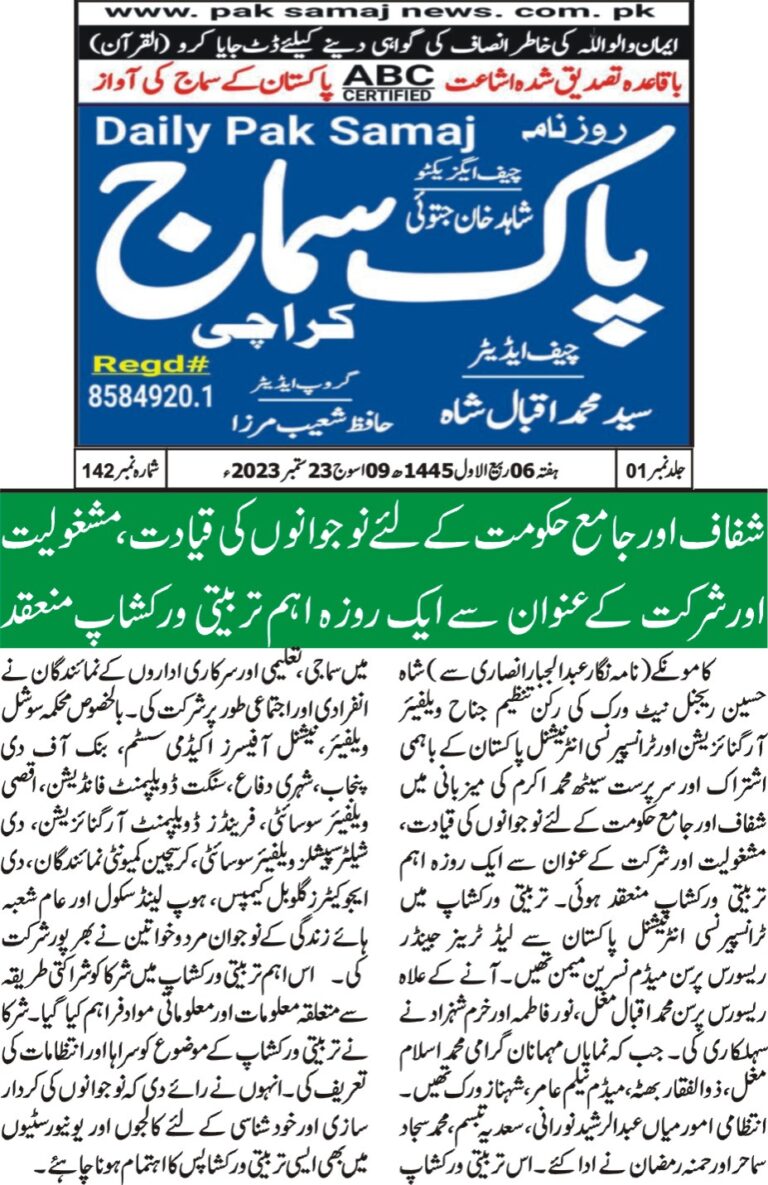- Home
- Training Workshop: Youth Leadership, Engagement & Participation for Transparent & Inclusive Governance
Training Workshop: Youth Leadership, Engagement & Participation for Transparent & Inclusive Governance
Training Workshop: Youth Leadership, Engagement & Participation for Transparent & Inclusive Governance
Venue: District Gujranwala, Punjab
Date: September 21st, 2023
Transparency International Pakistan organized training workshop on Youth Leadership, Engagement & Participation for Transparent & Inclusive Governance at Dabu Inn Hotel UC-Kamoke, District Gujranwala, Punjab, on September 21st, 2023.
Approximately 50 participants, representing various Civil Society Organizations (CSOs), journalists, and lawyers dedicated to the Right to Information, Human Rights, and Institutional Development at the district level, actively engaged in this workshop.
Opening event commenced with the recitation of the Holy Quran, followed by a round of introductions. Mr. Muhammad Iqbal Mughal, Chairman of the Jinnah Welfare Organisation Kamoke, Gujranwala – Punjab welcomed the participants and briefed on the objectives of the training Workshop.
Afterwards, Ms. Nasreen Memon, Gender Resource Person, TI Pakistan gave a detailed presentation on the topic of the workshop; Youth Leadership, Engagement & Participation for Transparent & Inclusive Governance. She delineated that youth leadership entails the active involvement of young people in decision-making processes, policy development, and community initiatives. Youth engagement encompasses various aspects of civic and social life, such as political participation, volunteering, community work, and activism, aiming to empower young voices with an aim to influence political decisions. Additionally, youth participation involves young individuals actively participating in political processes and local governance structures. Transparent governance refers to open, accountable, and accessible government institutions and processes.
Ms. Nasreen further elaborated on inclusive governance, emphasizing the importance of ensuring that all segments of the population, regardless of age, gender, ethnicity, or socio-economic status, have a seat at the decision-making table. Inclusive governance practices promoting diversity, equity, and the active participation of marginalized and underrepresented groups.
A significant point raised during the workshop was the question of why promoting youth leadership, engagement, and participation is essential for transparent and inclusive governance. Ms. Nasreen emphasized that involving youth in governance practices helps bridge social cohesion and ensure that the concerns of all age groups are addressed. It empowers young individuals, cultivating a sense of ownership and responsibility for their communities and countries.
Moving on, Mr. Shahzad, member, Friends Welfare Organization Gujranwala – Punjab and discussed in detail Punjab Right to Information (RTI) law. He emphasized that the primary purpose of RTI law is to empower citizens to request information from public authorities, promoting transparency and enabling accountability of government institutions. Citizens have the right to request information related to government policies, decisions, projects, expenditures, and other matters of public interest. Mr. Shahzad also shared the process of submitting written applications to the relevant public bodies and explained that the law typically sets a specific timeframe, usually within 20 to 30 days, for public bodies to respond to information requests. If a request is denied or if the response is unsatisfactory, citizens have the right to appeal the decision.
In the final session, participants were divided into four groups and tasked with filing RTI requests to the Municipal Services, Education Department, and Health Department.
During the workshop, Ms. Nasreen Memon raised questions that were a starting point for meaningful discussions and exploration to help and empower young individuals to become effective leaders and advocates for transparent and inclusive governance. One of the participants, Mr. Iqbal Mughal emphasized that youth leaders should acquire skills in communication, critical thinking, networking, and a deep understanding of governance processes to be effective advocates for transparent and inclusive governance. He also shared the successful example of a youth-led initiative, the “#NotTooYoungToRun” campaign in Nigeria, which advocated for and successfully lowered the age requirement for political office, allowing more young people to participate in politics.
Mr. Shahzad, an activist, suggested that to encourage youth participation in local governance at the community level, strategies such as creating youth-friendly spaces for meetings, workshops, and discussions, providing training and mentorship opportunities, and involving them in decision-making processes can be employed.
Mr. Wali Muhammad, an advocate, argued that today’s youth can contribute to efforts and take steps to address issues of corruption and unethical practices in government through measures such as strengthening anti-corruption laws and institutions, promoting transparency, and engaging in civic activism. Youth can contribute by advocating for reform, participating in anti-corruption initiatives, and holding leaders accountable for their actions.
Mr. Arif, a media person shared that technology and social media are powerful tools to promote transparency and engage with government officials effectively. By using these platforms to share information, raise awareness about important issues, organizing online campaigns, and establishing direct lines of communication with policymakers, youth can play a significant role in promoting transparency and accountability.
Participants also highlighted that the training workshop has provided them an excellent platform to learn about social accountability and advocate for policies that prioritize youth involvement.
Towards the end, Mr. Iqbal Mughal, Chairperson Jinnah Welfare Organization, extended his gratitude to Transparency International Pakistan and the participants, for organizing an informative and engaging session in district Gujranwala.


